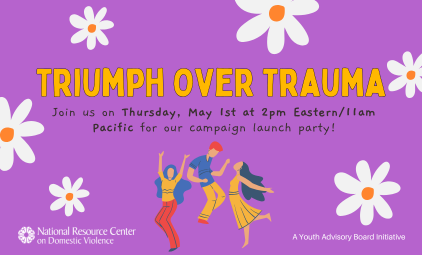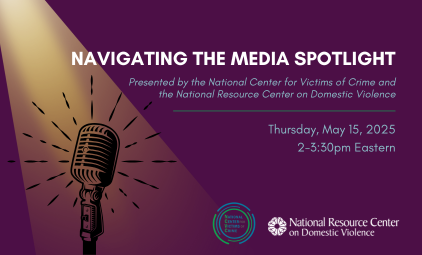 “There are many effects of the abuse that are particular to males. Men are not supposed to be victims. Society tells us: men don’t get depressed, men don’t seek help, men don’t need therapy...” − Male Survivor
“There are many effects of the abuse that are particular to males. Men are not supposed to be victims. Society tells us: men don’t get depressed, men don’t seek help, men don’t need therapy...” − Male Survivor
As advocates, we should know how to support and advocate for all survivors including those that identify as male. Providing culturally relevant services to male-identified survivors is not only required by law; it is the ethical and right thing to do. Meeting the needs of ALL survivors can be done.
Women and children continue to represent the majority of victims seeking DV services. For decades, programs have provided services to keep them safe and respond to their needs. But we must try to understand the dynamics at play for survivors across the gender spectrum. We can address male victimization while honoring the gender analysis guiding our work. We understand that violence and abuse is informed by power and oppression. Creating thoughtful and intentional programs will help add inclusive responses to existing programs. Better yet, we can create new and specialized services to address specific needs. We can expand and re-imagine our responses without compromising our current advocacy efforts. That is, when we comprehensively serve the most marginalized survivors, we more effectively serve all survivors.
“Advocates cannot rely on gender or a checklist of behaviors to determine who is abusing power.” - Edric Figueroa & Amarinthia Torres
Like many female victims of abuse, male-identified victims often fear that they will not be believed. They also fear that they will be labeled as the perpetrator when they reach out for support. Gay, bisexual, and transgender survivors of violence, and Native and men of color face additional barriers to seeking and getting trauma-informed and culturally responsive support. As advocates we must work on increasing our understanding of the socio-cultural barriers to disclosing abuse. This requires addressing bias and stigma. It also requires the elimination of structural barriers to help-seeking for male-identified survivors.
This Technical Assistance (TA) Bundle includes resources to help advocates and service providers increase their capacity around serving male-identified victims. Promising practices are shared throughout the resources to invite those helping survivors in developing programs and services to support survivors across the gender spectrum.














